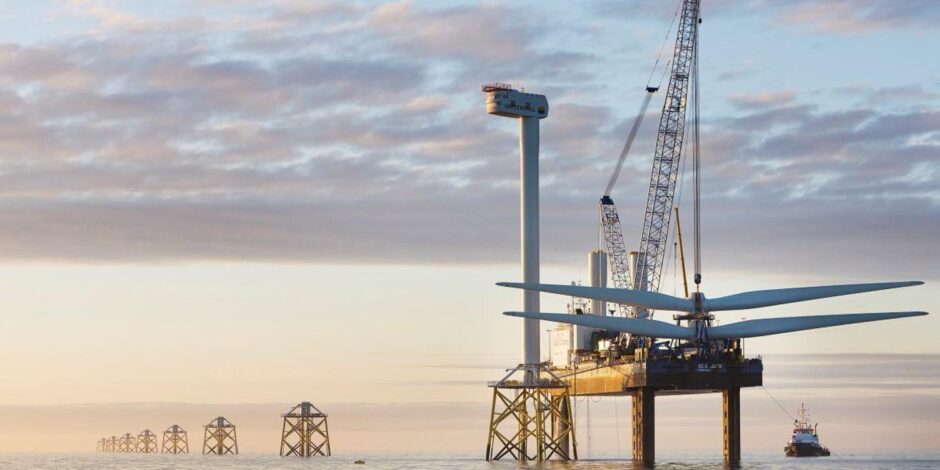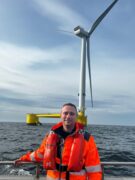
Earlier this summer, the manufacturing trade organisation Make UK revealed that Britain had dropped out of the top 10 manufacturing nations for the first time since 2012.
Like many others, I was concerned to hear this news. It’s a worrying trend reinforcing the need for the UK to react with a long-term industrial strategy to take competitive advantage of our undoubted strengths.
We are fortunate to have a world-class offshore energy supply chain comprising an amazing array of companies. This extensive ecosystem of businesses has developed over the past 50 years to support every phase in the oil and gas production lifecycle, from searching for hydrocarbons below the seabed to fabricating immense offshore installations from steel and concrete, as well as decommissioning.
North Sea experience is seen as a badge of honour, opening doors for our people and companies around the world. And the highly relevant solutions developed by the oil and gas sector will enable us to make faster progress towards the UK’s clean energy goals.
Manufacturing is one of several major segments in our offshore energies supply chain and a key part of the UK economy. It will be important as we focus on the technologies and capabilities required to support renewable energy generation in the future.
Rystad Energy’s research published this year provides us with invaluable insight into which segments of the new low-carbon energies, including floating offshore wind (FOW), carbon capture and storage (CCS) and hydrogen, the oil and gas supply chain could effectively target. This is key to understanding which technology and skills require priority investment.
Among these priority areas, Rystad identified a significant opportunity to expand the manufacture of major equipment and materials such as compressors, pumps and mooring lines, as well as offshore assets including anchor-handling vessels and offshore construction vessels.
This is one of several key segments that would need to scale early, although we may not have existing capability to manufacture the latter in the UK.
Other supply chain segments that should be prioritised for early scaling include engineering, fabrication and construction of offshore structures such as ports, and onshore facilities including processing plants.
This research builds on our Supply Chain Roadmap, published in our 2023 Harnessing the Potential report outlining a blueprint for jobs, economic growth and innovation for the UK offshore energy supply chain. Working with Robert Gordon University, we looked at how we could enable our supply chain to accelerate the changes required to deliver net-zero carbon emissions in the UK by 2050.
The truth is that we’ve been working relentlessly to raise awareness of our amazing supply chain. After years of decline, the UK energy supply chain has the potential to scale rapidly, but creating new opportunities for people and the economy starts with unlocking investment into our offshore energy supply chain – and the time to act is now.
Our members are concerned that this amazing potential may not be realised. In August, more than 40 supply chain organisations expressed their concern about the government’s tax proposals. Our chief executive, David Whitehouse, said the letter showed the level of concern felt by supply chain companies about the government’s new tax proposals. It also showed they had a clear desire to be represented in the task forces and councils determining industrial policy.
Later that week, we raised awareness of supply chain priorities when OEUK hosted a reception in Aberdeen to introduce new energy minister Michael Shanks MP to offshore energy companies in the region and across the UK.
This was a great opportunity to introduce the new Supply Chain Champion, Steve Nicol, executive president of operations at leading consulting and engineering company Wood, to the new energy minister. The minister was also presented with a report produced by Sian Lloyd Rees, the outgoing Supply Chain Champion.
We need British firms of all sizes to deliver a homegrown energy transition, which is the path to economic growth, energy security and net zero. To harness the full potential of these world-class UK companies for the next 50 years, there is no simple choice between oil and gas or renewables. The reality is that we will need to back all these companies so they are in a position to power the country, grow the economy and create the low-carbon energy system of the future.
Recommended for you

 © Supplied by OEUK
© Supplied by OEUK